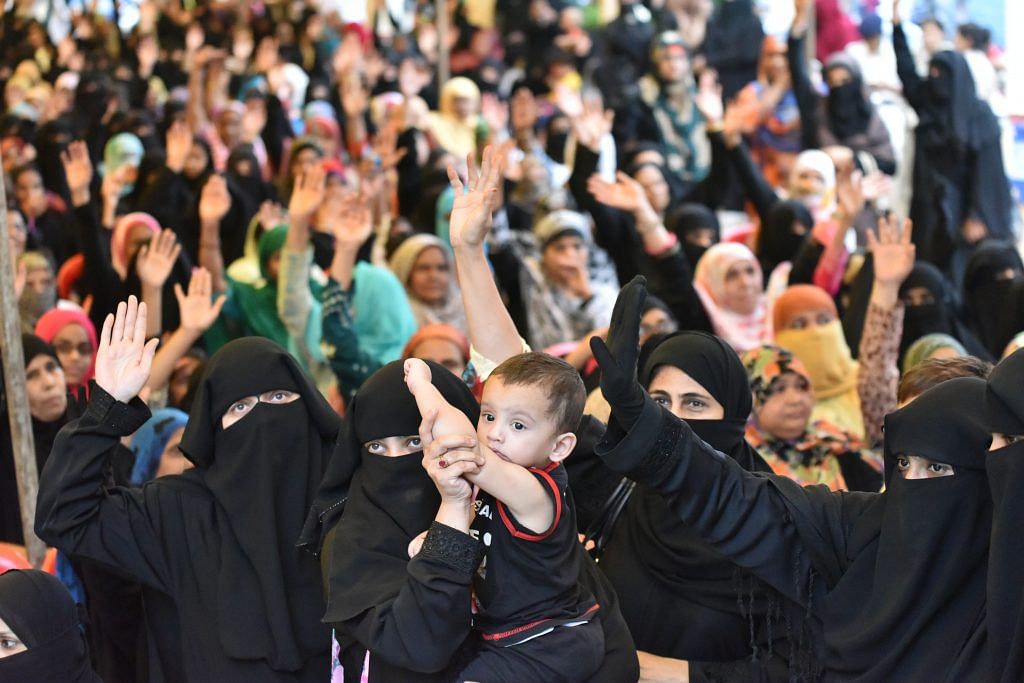ThePrint asks:
Is criminalising triple talaq a legal necessity or a political gambit?
The debate over the legality of triple talaq is inextricably related to its politics. However, the contours of this politics have not yet been adequately discussed.
There are three aspects of the triple talaq debate that directly contribute to its unequivocal politicisation.
First, the entity called ‘triple talaq’ is presented to us as a symbol of Muslim homogeneity. We are told that Muslims of India constitute a single, closed, homogeneous community, which practices triple talaq as an Islamic norm. Therefore, the argument goes, the criminalisation of triple talaq should be seen as a positive step for reforming Muslims/Islam.
The portrayal of triple talaq as a universal Islamic practice is used to present Muslims as the ‘other’ – as if Muslims only follow Shariat and disregard constitutional law. This deliberate ‘othering’ of Muslims helps the Hindutva elite to consolidate their identified constituency, which they describe as ‘nationalist mainstreamed Hindus’.
Here are other sharp perspectives on the question:
Zakia Soman, founding member of Bharatiya Muslim Mahila Andolan
Faizan Mustafa, vice-chancellor of NALSAR University of Law, Hyderabad
Salman Khurshid, politician and advocate
Second, the triple talaq debate also contributes to the conventional binary of Indian politics with regard to Muslims – namely, ‘good Muslim’ versus ‘bad Muslim’. Triple talaq is posed as an objective-type multiple choice question. Muslims are given two options—support it or oppose it. The meaning of ‘yes’ and ‘no’ are also premeditated. ‘Yes’ refers to closed Islamism (meaning “bad, anti-national Muslims”) and no stands for modernity and progress, meaning “good, nationalist Muslim”. This good Muslim-bad Muslim frame of reference does not allow us to look at the multiplicity of Muslim political responses on this issue.
Finally, the manner in which the triple talaq debate is linked to the Uniform Civil Code (UCC) also makes it politically contentious. The criminalisation of triple talaq does not mean that the personal laws of different communities would entirely be illegalised and a new UCC will come into existence.
The practice of triple talaq is a social evil and its abolition will pave the way for a gender-just Muslim society. But UCC is not Hindu Law either. In fact, we do not have any draft of UCC at all. This ambiguity around UCC transforms the triple talaq debate into a political gambit.
Hilal Ahmed is an associate professor at CSDS.
